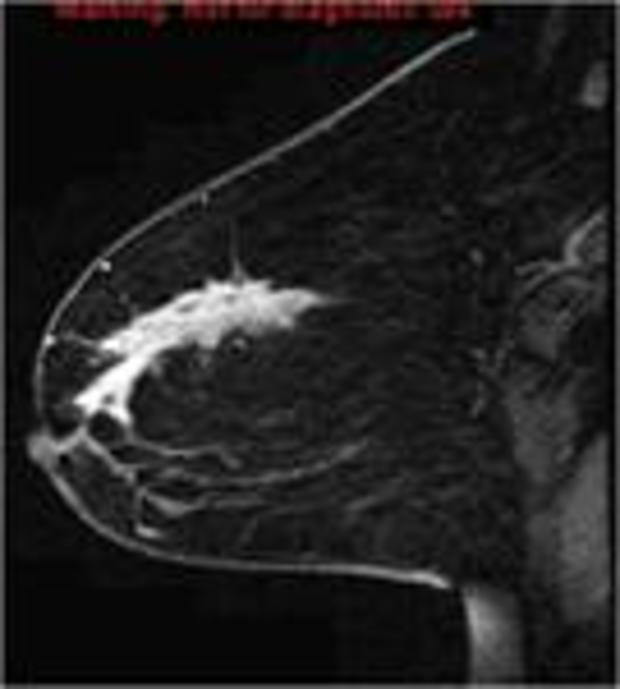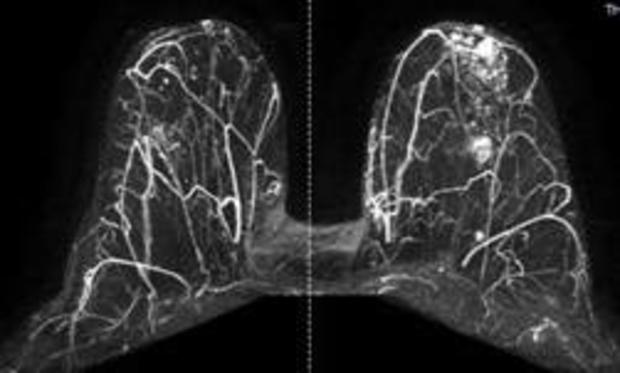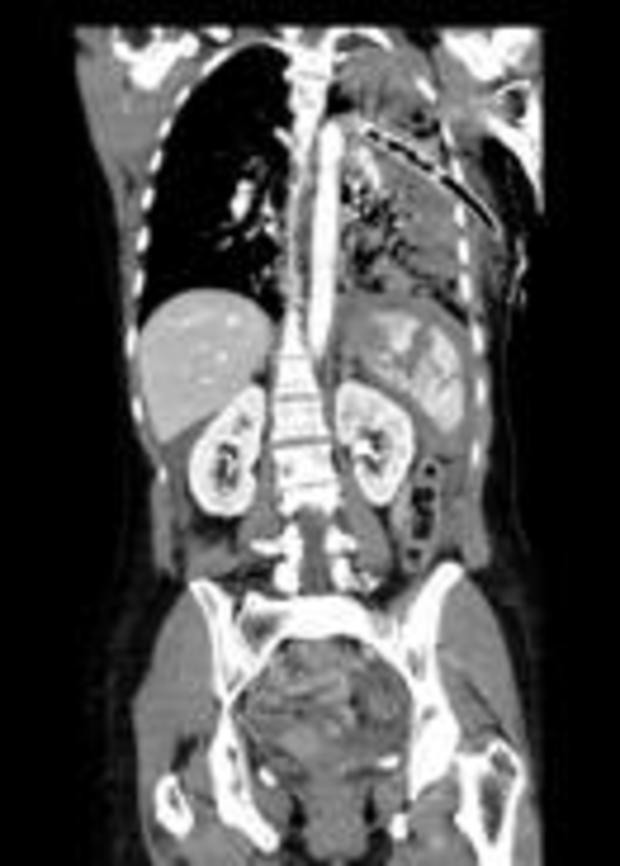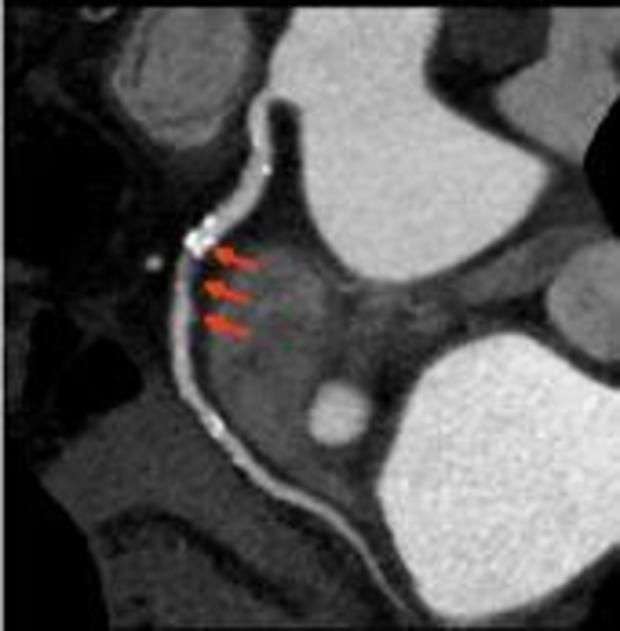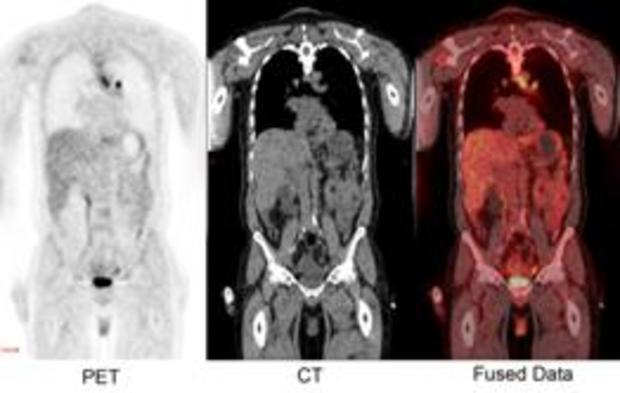Five New Imaging Tests Can Help Diagnose A Variety Of Illnesses Better
By Michael Lasalandra, Beth Israel Deaconess Medical Center Correspondent
The evolution of imaging technology has resulted in doctors' being able to more quickly and accurately diagnose many potentially life-threatening disorders, including serious abdominal issues, and coronary artery disease, as well as brain tumors and other cancers, to name a few.
"Current technologic advances in CT, MRI and PET imaging reflect advancements that have evolved over the past 20 years," said Dr. Max Rosen, Executive Vice Chairman Radiology, Beth Israel Deaconess Medical Center. "They are a leap forward towards more personalized medicine focused on an individual patient's specific problem. The improvements are leading to more rapid and accurate diagnoses, which potentially can lead to more effective, lifesaving treatments."
Five examples:
Breast MRI
MRI (magnetic resonance imaging) machines do not expose patients to radiation. Instead, they use a magnetic field, radio frequency pulses and a computer to obtain images. While mammograms, which use x-ray technology, are the primary method for screening for breast cancer, MRI can be used to work up more subtle cases, or for breast cancers which cannot be seen on a mammogram says Dr. Rosen. Typically, breast MRI is reserved to screen women who are at high risk for developing breast cancer, to determine extent of cancer involvement in newly diagnosed patients, to problem-solve a suspicious finding on other imaging, or to aid in surgical planning.
Abdominal CT scan
Also known as computed tomography, CT scans combine a series of X-rays taken from a variety of different angles to produce cross-sectional images of the bones and soft tissues inside the body. These are often used in the Emergency Room setting to rapidly and accurately diagnose abdominal pain. "CT can accurately identify the cause of the pain," says Dr. Rosen. "Common causes would be appendicitis, diverticulitis, kidney stones or inter-abdominal bleeding." Such scans are also extremely useful for patients who have been in traumatic accidents. Multi-row detector CT scans can rapidly image the entire chest, abdomen and pelvis in less than a minute and can identify life-threatening fractures or other complications, he notes.
Coronary CT Angiogram to evaluate heart arteries
This test is useful in identifying narrowing in the coronary arteries. "By injecting an IV contrast dye into the vein and using a fast scanner, you can get beautiful images of the coronary arteries," says Dr. Rosen. "You can see if there is plaque and if it is causing any narrowing." The test is used for patients who have been having chest pain or for those at high risk for coronary disease with atypical chest pain and can identify those patients who are not having a heart attack, he says. The advantage is that cardiac catheterization - where a balloon-tipped catheter is snaked through the coronary artery - may be avoided. However, if the CTA is abnormal, the catheterization may still need to be performed prior to bypass surgery or to dilate the blocked artery using a balloon catheter or metallic stent.
PET-CT scan for cancer assessment
Positron emission tomography, also called a PET scan, is a type of nuclear medicine imaging. It uses tiny amounts of radioactive material as tracers to diagnose a variety of diseases, including many types of cancer. The scan can visualize metabolic activity in an area of suspected abnormality such as a tumor. Doctors can use PET and CT data and images together for greater diagnostic accuracy than either technique offers alone. PET-CT allows them to see not only the size of the tumors, but also their biological behavior and whether or not they are responding to therapy. This hybrid technology "is the beginning of a new wave of molecular imaging where you can target a specific tumor to help characterize it as well as see if it is growing or metabolizing," Dr. Rosen says.
fMRI (functional MRI) for evaluation and treatment planning of brain tumors
Functional Magnetic Resonance Imaging (fMRI) is a type of specialized MRI scan. It assesses the change in blood flow related to neural activity in the brain or spinal cord. It is widely used for brain mapping due to its high accuracy and absence of radiation. fMRI is often combined with Diffusion Tensor Imaging (DTI), which measures water diffusion in the brain, for imaging brain tumors. These methods can assist in planning surgery to avoid complications that might occur with less detailed preoperative evaluation. fMRI and DTI are routinely used when the tumor location is such that there is a concern for neurological deficits occurring during surgery. This type of imaging is usually performed shortly before surgery and can be critical in decisions of whether and how to approach the tumor, Dr. Rosen says.


Above content provided by Beth Israel Deaconess Medical Center. For advice about your medical care, consult your doctor.
More Articles From Beth Israel Deaconess Medical Center:Five New Imaging Tests Can Help Diagnose A Variety Of Illnesses Better | Airport Security Scanners: Are They Safe? | What Is The Best Breast Cancer Screening Tool? | Cardiac CT Scan An Alternative To Catheterization | Ultrasound Option For Shoulders, Knees | Radiation Reduction | ERCP For Stomach Pain | Five New Imaging Tests Can Help Diagnose A Variety Of Illnesses Better | Airport Security Scanners: Are They Safe? | Women And Sport Injuries – Why It's A Different Game | Common Sports Injuries – How To Protect Yourself | Repetitive Injuries: Physical Therapy Keeps 'Wounded Warrior' On Top Of Game | Skiers, Take Note: ACL Injuries Are Serious, But Not Career Ending | Weekend Warriors: Prevent Injuries | Coming Back From ACL Tear | Athletes & Shoulder Arthritis
